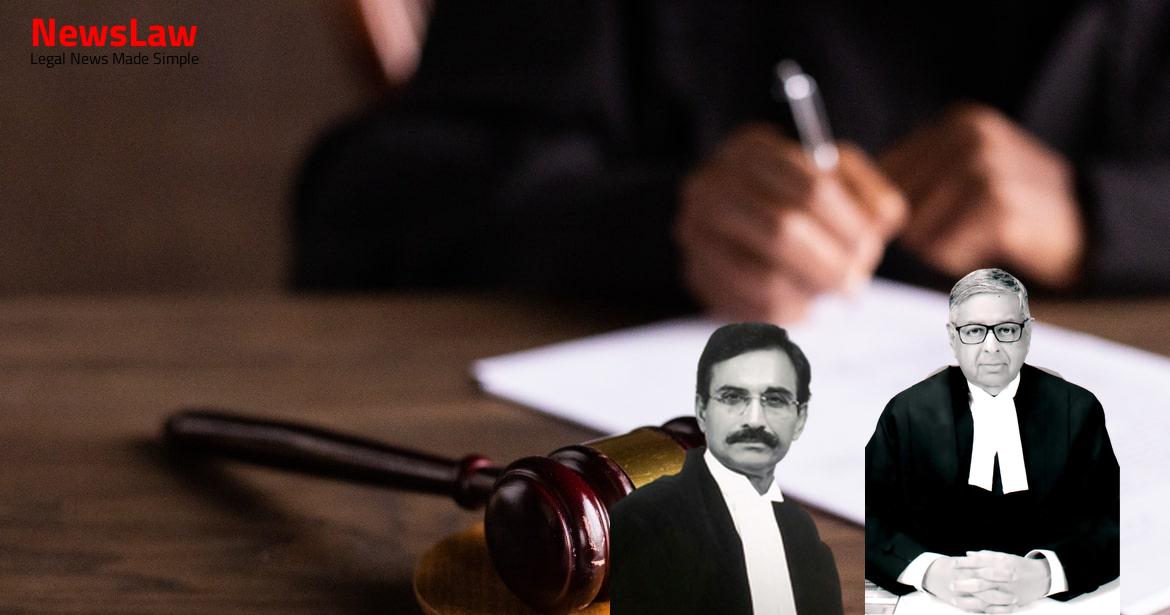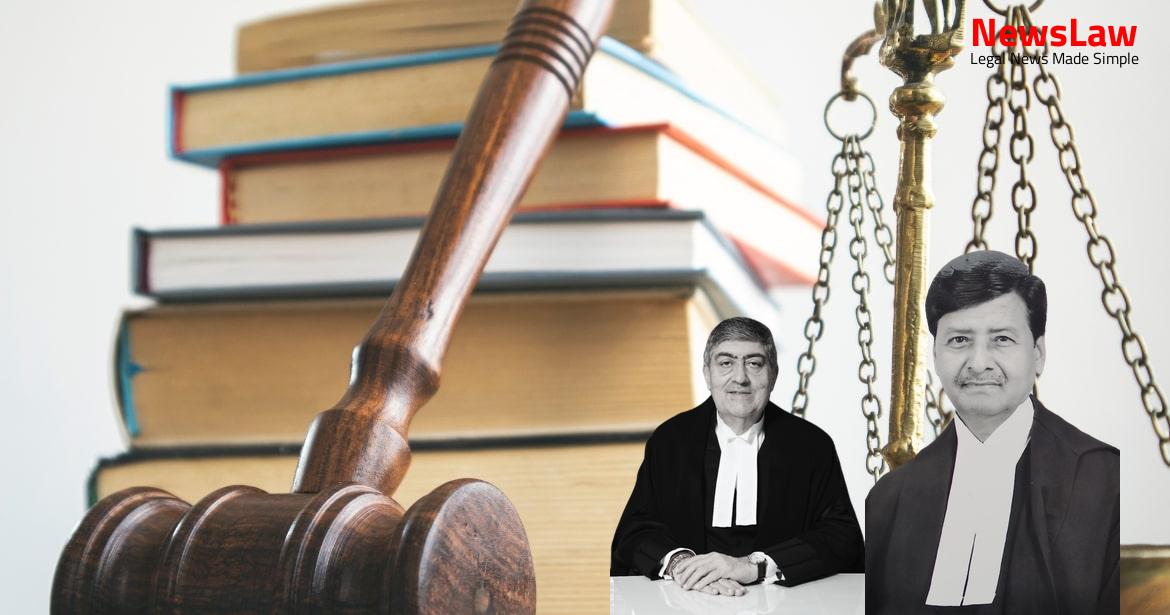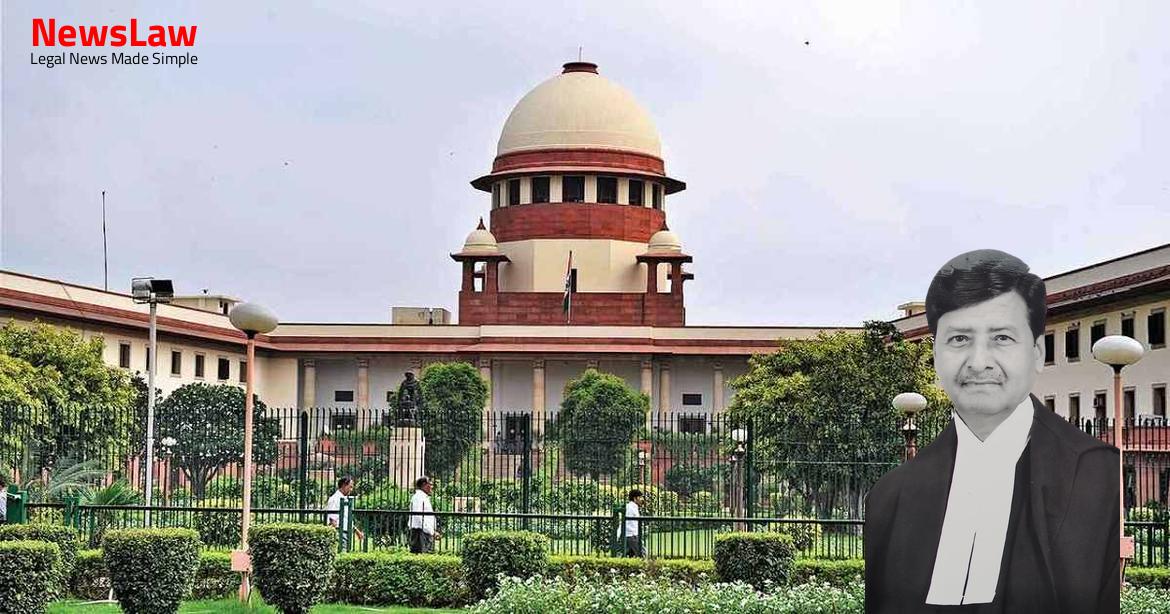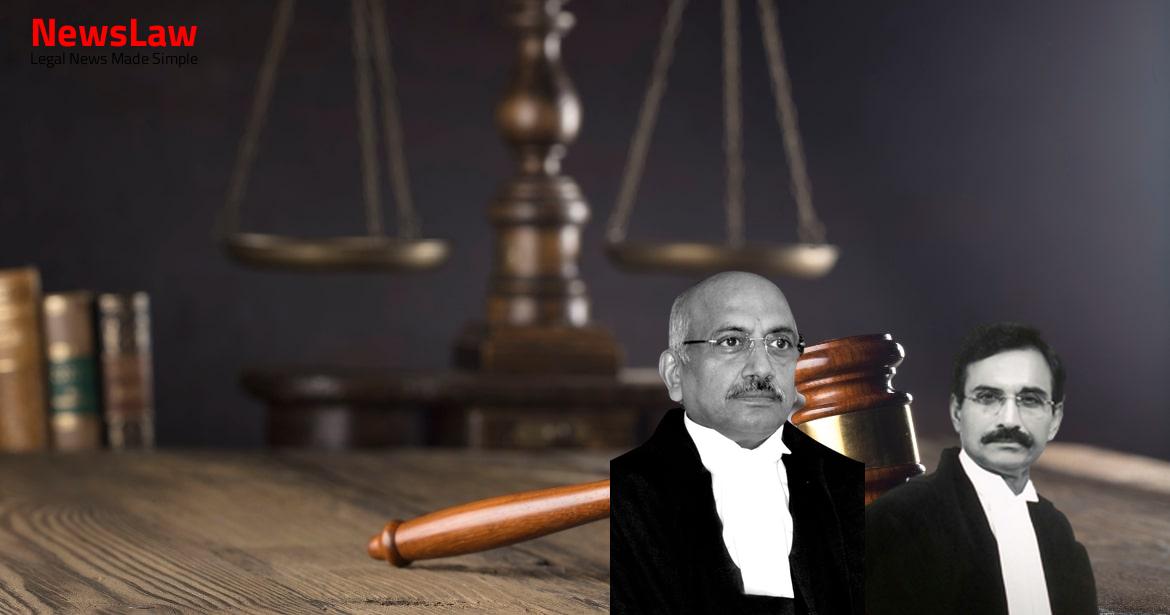The case delves into the intricate legal analysis surrounding the inter-se seniority dispute in the judicial services. The court’s evaluation of seniority rules and their application is central to understanding the complexities of the case. Stay tuned to unravel the nuances of the judicial system’s approach to seniority determinations in this intriguing legal dispute.
Facts
- Petitioner appointed as District Judge (entry level) in direct recruitment to Higher Judicial Services in Madhya Pradesh on 27.05.2008.
- Petitioner’s representations for seniority determination based on 40 point roster were rejected on 11.09.2019 citing prospective application of 2017 Rules from 13.03.2018.
- District Judges promoted through LCE in 2009 given seniority over directly recruited District Judges by Full Court resolution on 27.10.2015.
- Special Committee recommended seniority of District Judges promoted through LCE over direct recruits on 02.09.2009 compared to those appointed on 10.09.2009.
- 1994 Rules on appointment methods for District Judges – direct recruitment or promotion.
- 2017 Rules prescribe 65% promotion, 10% LCE-based promotion, and remaining 25% promotion for District Judges.
- Justice Shetty Commission approved recommendations on Higher Judicial Services recruitment including 25% direct recruitment from advocates based on competitive exam.
- Incentive for junior officers to compete for quicker promotion within 75% promotion and 25% direct recruitment ratio for Higher Judicial Services.
- Inter-se seniority of promotees and direct recruit District Judges determined by 40 point roster following R.K. Sabharwal & Ors. v. State of Punjab & Ors. ruling.
- Writ Petition (C) No. 675 of 2018 filed to challenge 2005 amendment to Uchchtar Nyayik Sewa (Bharti Tatha Seva Sharten) Niyam, 1994 and 2015 order on seniority determination.
- Rule 5 specifies appointment percentages for District Judges – 50% by promotion, 25% LCE, and 25% direct recruitment.
- Proviso to Rule 5 (1) (b) regarding LCE-based promotion declared ultra vires by Madhya Pradesh High Court in Y.D. Shukla & Anr. v. High Court of Judicature of Madhya Pradesh & Ors.
- Meetings held on amending seniority rule, Administrative Committee deferred decision due to pending SLP (C) No.24437 of 2008.
- Recommendation by Special Committee on seniority rule amendment accepted by Administrative Committee on 13.10.2015.
- Method of recruitment to posts in the cadre deferred due to pending SLP (C) No 24437 of 2008.
- The petitioners were appointed as District Judges through direct recruitment on different dates.
- They sought a direction for the implementation of a provisional gradation list issued in 2007.
- The District Judges promoted through LCE requested a change in the gradation list to be shown as seniors to direct recruits.
- The Administrative Committee accepted the request and decided to give seniority to promoted judges over direct recruits.
- One of the reliefs sought in the writ petition is to quash Rule 11 of the 2017 Rules.
- The petitioners in Writ Petition No. 675 of 2018 sought retrospective effect to the 2017 Rules.
- A provisional gradation list was issued in 2010 for District Judges.
- Both petitioners were directly recruited as District Judges in the Madhya Pradesh Higher Judicial Services.
Also Read: Legal Analysis on Seniority Fixation in Contempt Petitions
Arguments
- Petitioners argue that there was a delay in amending the seniority rule to align with the directions of the court in the All India Judges’ Association case
- Petitioners insist on re-determining the seniority of District Judges based on the roster system retroactively
- Petitioners contest the decision of the Special Committee and Full Court of the Madhya Pradesh High Court regarding the criteria for fixing inter-se seniority
- Petitioners argue against accepting representations from promotee District Judges through Limited Competitive Examination (LCE) to unsettle the seniority of direct recruits
- Petitioners claim that the delay in amending the seniority rule cannot be used to the detriment of directly recruited District Judges
- Petitioners assert that the 2017 Rules are prospective and representations for retroactive implementation of the roster system were rejected by the Administrative Committee of the High Court of Madhya Pradesh
Also Read: Legal Analysis of Decision-making Authority in Municipality Dispute
Analysis
- Rule 11(1) of the 2017 Rules states that the relative seniority of members of service as of the date of commencement of the Rules shall remain undisturbed.
- Cadre posts are to be filled by rotation based on the quota fixed in Rule 5(1)(a), (b) and (c) as per Rule 11(2).
- A roster for filling up posts based on quota to determine inter-se seniority of District Judges shall be maintained after the commencement of the Rules.
- Rules do not allow retrospective effect, as seen in the dismissal of the SLP on 14.08.2018 and the non-entitlement of Petitioners to the relief of the 2017 Rules being applied retrospectively.
- Amendment to the seniority rule directed by the Court in 2002 was only made by the High Court in 2018.
- The proviso to Rule 5 (1) (b) of the 1994 Rules states that recruitment to the post of District Judges shall be based on vacancies available upon reaching the required percentage.
- The petitioner, Y.D. Shukla, challenged the validity of this proviso on the grounds that it violates Article 233 (2) of the Constitution.
- The High Court of Madhya Pradesh examined the arguments presented by the petitioner and the state government.
- The Court held that the proviso to Rule 5 (1) (b) is valid and does not go against Article 233 (2) of the Constitution.
- The Court explained that the proviso does not impede the power of the state government to fill up vacancies in the post of District Judges.
- Special Committee resolved to follow the 1961 Rules for determining relative seniority of direct recruits and promotees based on the date of appointment/promotion order.
- Absence of provision for determining inter-se seniority of direct recruits and promotees led to a suggestion for amending the Rules.
- Principle of continuous officiation is well-settled when inter-se seniority is not covered in the Rules.
- High Court followed the principles of the 1961 Rules since there was no specific rule for determining inter-se seniority.
- Continuous officiation is a well-accepted principle in the absence of specific rules.
- The Full Court approved the recommendations made by the Special Committee and the Administrative Committee of the High Court.
- In the absence of rules for determining inter-se seniority, date of appointment/promotion was considered for fixing seniority.
- High Court did not commit an error by adopting the principle of Rule 12 (1) of the 1961 Rules.
- Full Court requested the Special Committee to examine the dispute of inter-se seniority of direct recruits and promotees through LCE based on relevant rules.
- Stakeholders were given an opportunity to present their views during the examination of the dispute.
Also Read: Land Dispute Legal Analysis
Decision
- The Writ Petitions are dismissed.
- Both Writ Petitions are disposed of by a common judgment.
- Seniority inter-se direct recruits and promotees shall be determined based on the Roster after the introduction of the 2017 Rules.
- Respondent No 11 is free to pursue his remedies as the Court is not concerned with that issue in these Writ Petitions.
Case Title: ANAND KUMAR TIWARI Vs. HIGH COURT OF MADHYA PRADESH (2021 INSC 398)
Case Number: W.P.(C) No.-000675 / 2018



